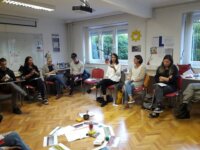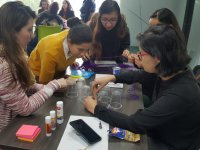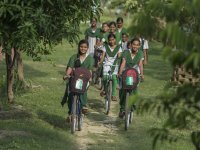The challenge the city Ljubljana wanted to address was how to approach young people who have ideas. What works well, and what could be even better? City Incubator is a programme for the implementation of the ideas of young people in Ljubljana. It is a sustainable tool for implementation and co-financing of local youth initiatives. Individuals or groups may put ideas forward and in the frame of the programme, they receive professional support for the fine-tuning, and financial support for the…
Innovation Tag: Human Resources
With the complex service system, it is difficult to help young people with numerous problems. The MY LIFE working method is a co-created, human service integration for young adults, complete with case management, a survey assessment, and an ePlatform.
Challenges facing the public sector are constantly evolving and managers increasingly require rapid access to talent to meet short timelines. Despite this, we still rely heavily on permanent hiring. In this context, we are testing a new workforce model. In this model, public servants are free to choose work that matches their skills and interests and can be rapidly deploy to work on projects.
We have launched the Citizens’ Packet to make Silesian Voivodeship Office (SVO) a more friendly and serviceable place for users. The core of the packet consists of practical facilitations for our clients who seek information or help. Our client-oriented solutions comprise diverse solutions on every level of our customer care and spread to every organisational unit in the SVO.
The Citizens’ Packet is available online via our brand-new official website.
This online course seeks to foster an innovation ecosystem in Bogota’s public offices, offering Bogota’s public officials the tools to gain capacities for public innovation.
Through practical exercises that are related to drawing and mapping, among others, public officials gain insight on ways to approach the users of public services.
Government of West Bengal provided 7.0 million bicycles to students of class IX to XII standard in Government run and aided schools as mobility support under “Sabooj Sathi” scheme – a pioneering initiative towards universal access to higher education.
The Twinning Programme is part of the Gauteng Department of Education’s wider strategic framework and its “Re-organisation of Schools” strategy. The objectives of the Twinning Programme are to improve learner outcomes and foster social cohesion in nurturing holistic learner development by creating an environment for cultural exchange through sharing expertise and resources across suburban and township schools.
The Trinidad and Tobago Diamond Standard Certification Programme (TTDS) was launched in 2013 as the National Standard for excellence in public service delivery. The programme certifies government services that demonstrate strong commitment to meeting citizen needs.
My Open Library is a customer service delivery project which extends public library opening hours from 8.00 am to 10.00 pm, seven days per week. New technology allows users to access the buildings and services at times that suits them best.
Korean government has been calling for the innovation of education and training system to narrow the gap between school education and employers’ requirements and to address the high youth unemployment rate issue.
The Ministry of Employment and Labor and the Human Resources Development Service of Korea introduced the Work-Learning Dual System in 2013.
It was adopted to get rid of mismatches between school education and workplaces based on the National Competency Standards led by companies.



